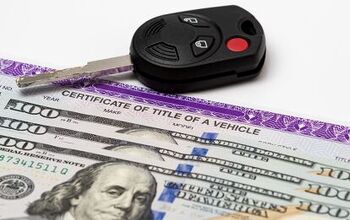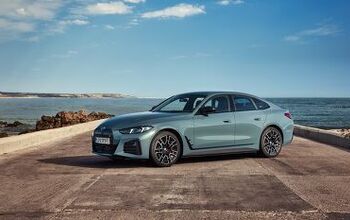On-line Car Buying Is Alive And Well In China

Ever since the late 90s, car manufacturers and especially car dealers were scared of the Internet. By the end of the 90s, it was agreed that the likes of Carpoint or Autobytel would turn into huge virtual showrooms and would put dealers out of business. It didn’t happen. The opposite happened. The many car shopping sites drove business to dealers. Ten years later, there it is again: The specter of the wicked disintermediation has returned. Direct sales to customers via electronic media are popping up in the world’s largest auto market.
Unencumbered by harsh franchise laws, and faced with stiff competition amongst more than 100 car manufacturers, Chinese automakers are starting to sell vehicles online, even via TV.
Last year, China’s SAIC set up a sales website for their Rover Roewe 550, which gets “more than 20,000 hits per day,” reports an aghast The Nikkei [sub], which says that such an approach would be “largely taboo in Japan.”
The site isn’t quite disintermediating yet. It has the usual 3-D images, car data etc. to drive buyers to dealers. However, it shows which dealers give the highest discounts, something very taboo amongst manufacturer-sponsored sites.
Geely is going one further. Customers who order a car on-line can receive a 30 percent discount if they are the lucky winner. Such a practice would cause howling protests and lawsuits elsewhere.
Worried about being disintermediated, dealers go on the counter-attack. Chinese BMW dealers have partnered with a Shanghai-based TV shopping firm. TV shoppers bought 19 cars in the first hour.
Dealers of Daimler, known as “Benz” in China, are hawking Mercedeses on TV at up to 22 percent off. The mere idea would make Dr. Z’s lose hair, and turn his moustache bright grey, if it wouldn’t already be that way.

Bertel Schmitt comes back to journalism after taking a 35 year break in advertising and marketing. He ran and owned advertising agencies in Duesseldorf, Germany, and New York City. Volkswagen A.G. was Bertel's most important corporate account. Schmitt's advertising and marketing career touched many corners of the industry with a special focus on automotive products and services. Since 2004, he lives in Japan and China with his wife <a href="http://www.tomokoandbertel.com"> Tomoko </a>. Bertel Schmitt is a founding board member of the <a href="http://www.offshoresuperseries.com"> Offshore Super Series </a>, an American offshore powerboat racing organization. He is co-owner of the racing team Typhoon.
More by Bertel Schmitt
Latest Car Reviews
Read moreLatest Product Reviews
Read moreRecent Comments
- Lou_BC Sweet car.
- FreedMike With 157K miles, that's basically a beater that looks good. Plus, I heard Honda CVTs turn dicey with age. I'm a "no" at $12,500, but someone's heart will go all aflutter over the J-vin (Ohio-vin?) and pay up. With a manual in the same shape, I'd be in for a LOT less.
- EBFlex More proof the EV world is crumbling. In a market with supposedly “insatiable demand”, these kinds of things don’t happen. Nor do layoffs.
- Buickman 17 Lacrosse, 18 Enclave, 19 Stingray Drop.each Red, Tan guts.I just want to feel this moment, and I own it~ (them, sic)
- FreedMike Dodge always had the best colors on the Challenger. I particularly liked Hemi Orange and Plum Crazy. Otherwise, give me Mazda's Soul Red.


































Comments
Join the conversation
It's a pity there isn't more info. China could be a harbinger of future auto retailing. What they need to establish is: Are online sales in areas already *well* served by dealerships? Underserved? Nonexistant? What are the buyers looking for? What are they avoiding? Is it a time issue? An information issue? Pricing issue? It certainly is something to watch.
Getting back to buying on the net - it will be interesting to see how it works out in China. If it were possible elsewhere, I wonder how many people would buy via the web? I imagine quite a few people might not care about test driving their prospective purchase - as strange as that sounds. After all, for most people are car is a refrigerator, and even if you look at the fridge before you buy it, you don't really test it out until you take it home a plug it in.